
65 Montblanc Watches
-
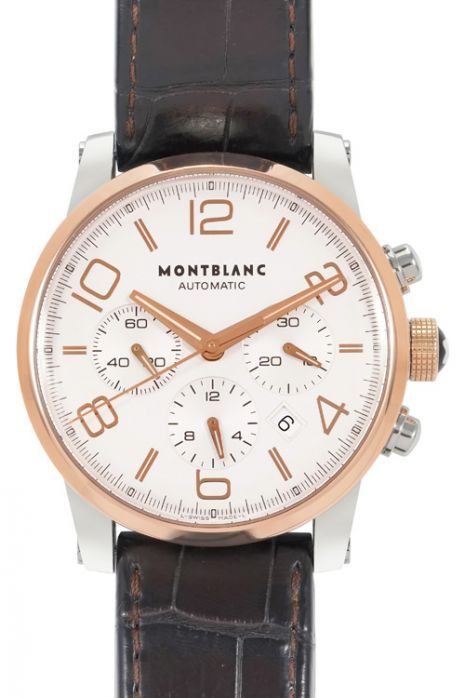
MontblancTimeWalker
43 Mm₹ 3,30,000
-
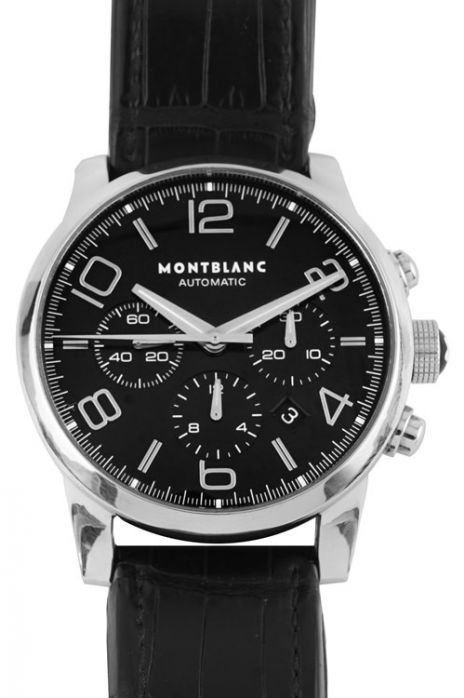
MontblancTimeWalker
2016 43 Mmsold out -
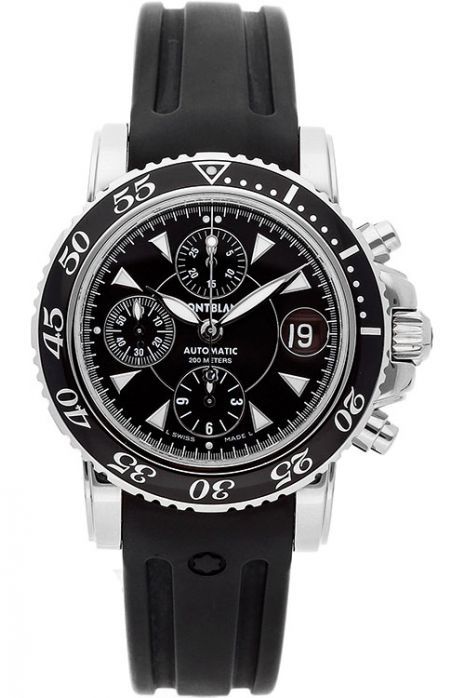
MontblancSport
42mmsold out -
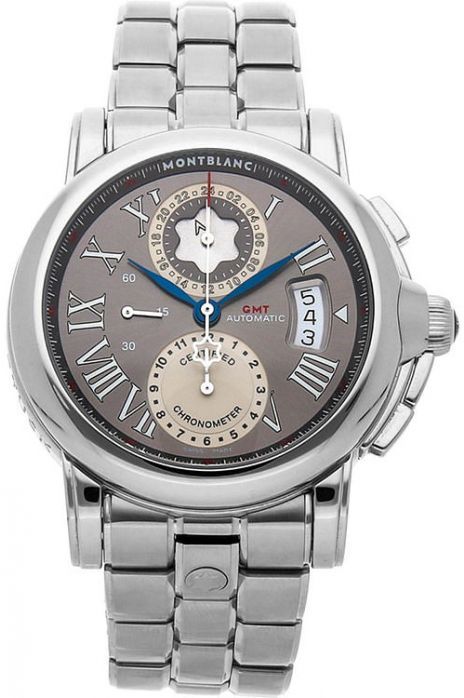
MontblancStar
2012 43 Mmsold out -
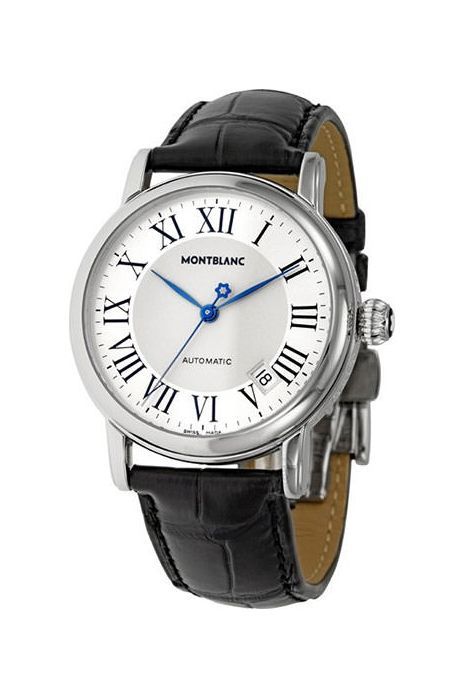
MontblancStar
36 Mmsold out -
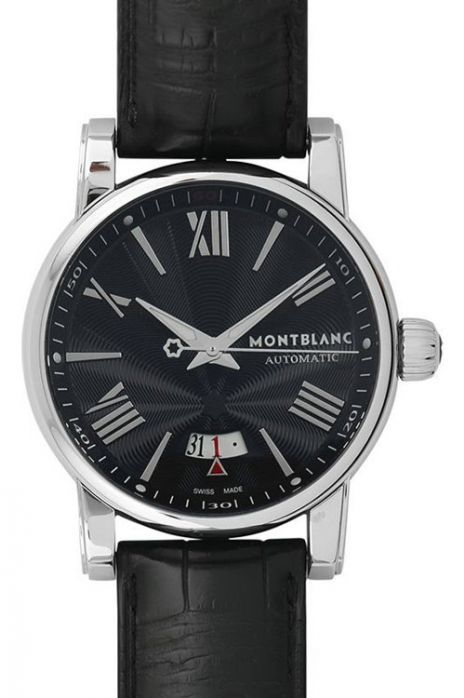
MontblancStar
2010 40 Mmsold out -
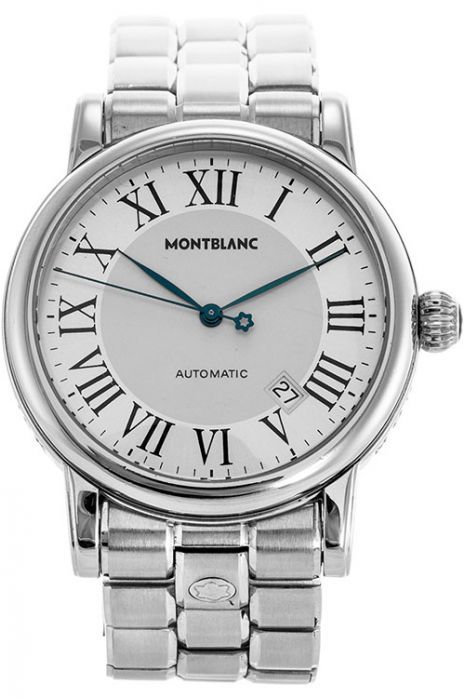
MontblancStar
2017 40 Mmsold out -
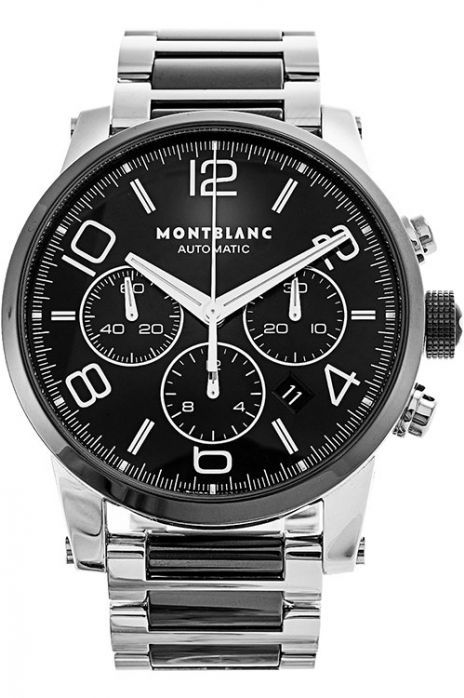
MontblancTimeWalker
2014 43 Mmsold out -
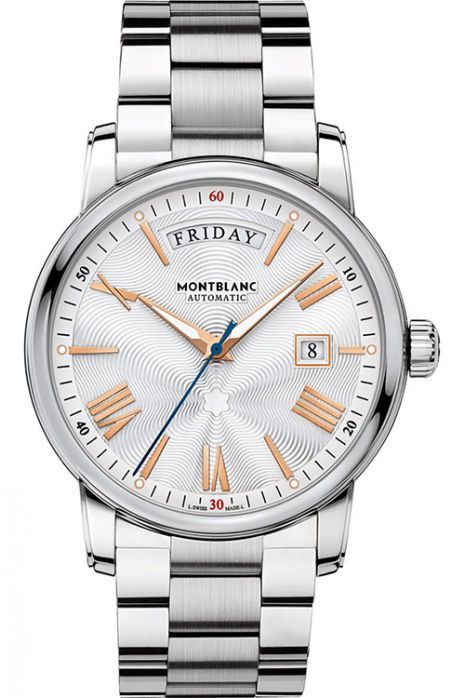
MontblancMontblanc 4810
2016 40.5 Mmsold out -
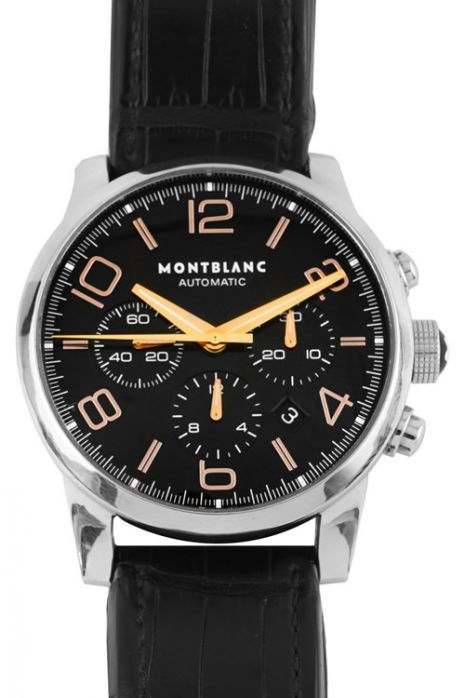
MontblancTimeWalker
2010 43 Mmsold out -
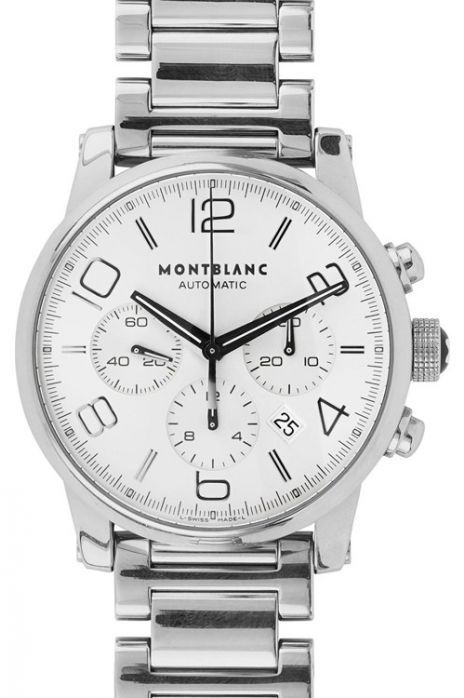
MontblancTimeWalker
2016 43 Mmsold out -
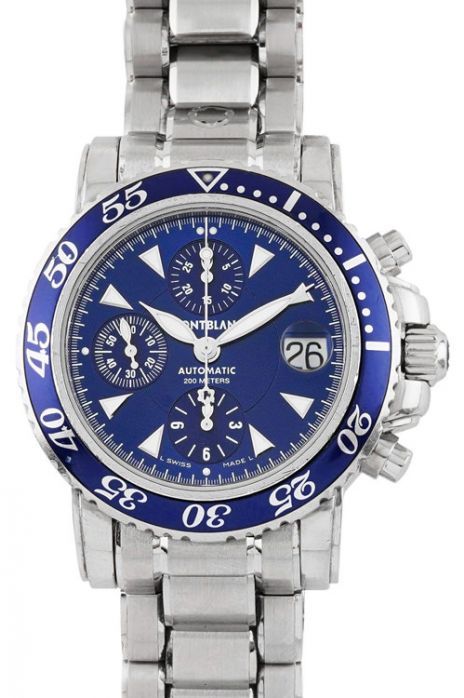
MontblancSport
2013 41 Mmsold out -
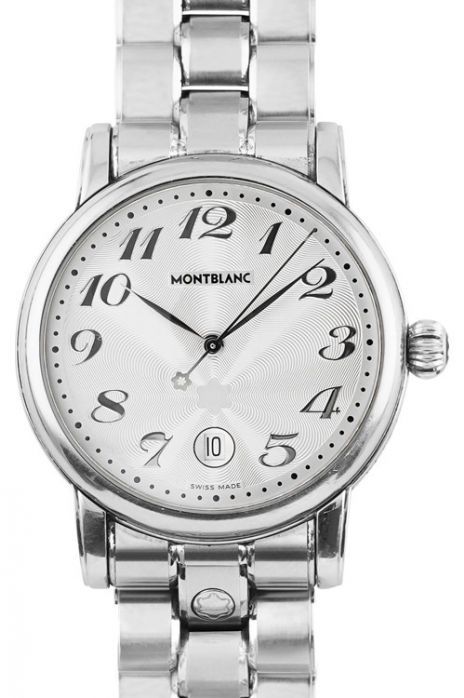
MontblancStar
2015 42 Mmsold out -
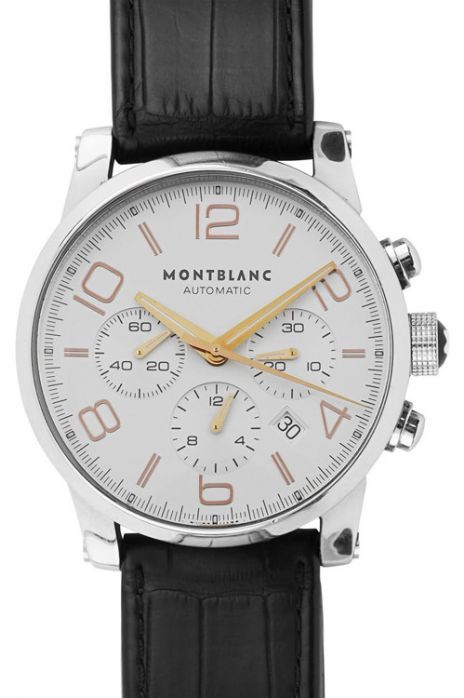
MontblancTimeWalker
2014 43 Mmsold out -
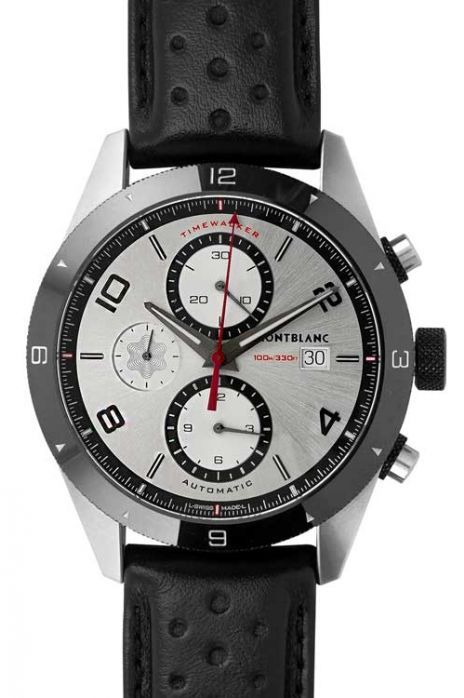
MontblancTimeWalker
2019 43 Mmsold out -
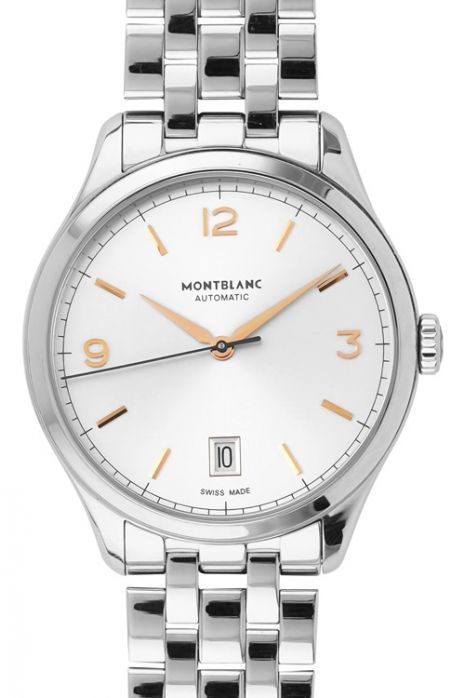
MontblancHeritage
2019 38 Mmsold out -
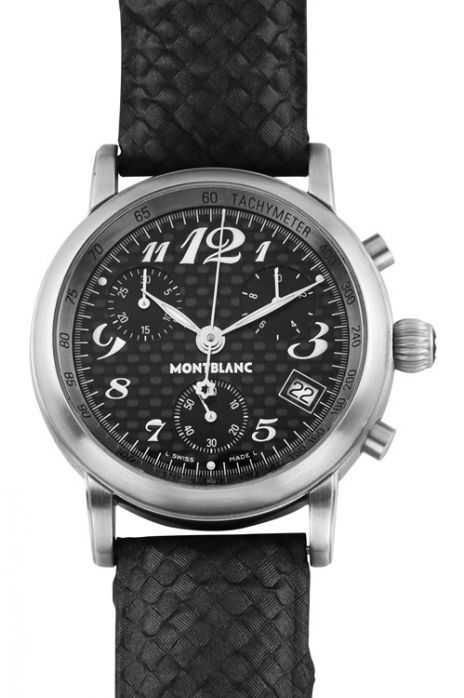
MontblancStar
2018 36 Mmsold out -
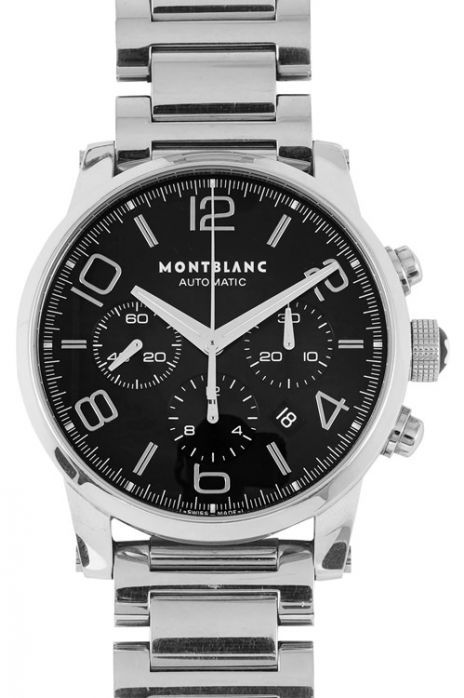
MontblancTimeWalker
2013 43 Mmsold out -
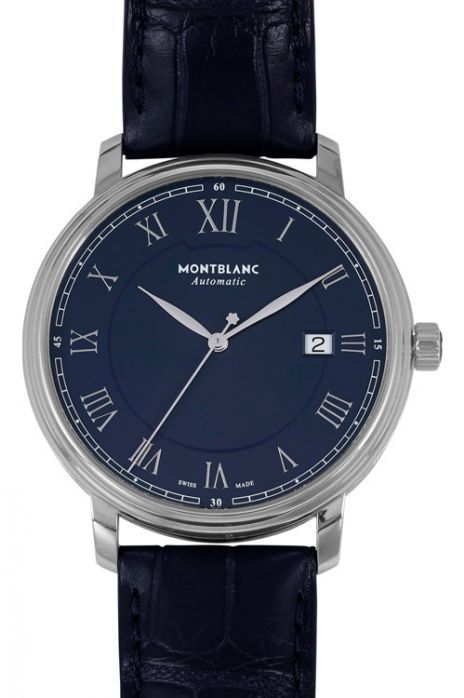
MontblancTradition
2018 40 Mmsold out -
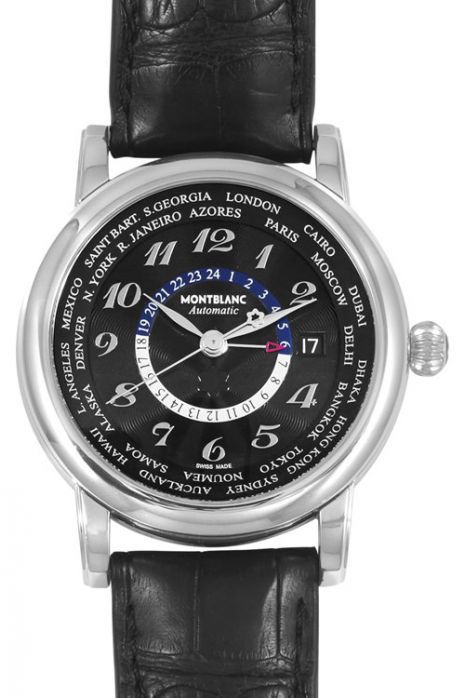
MontblancStar
2014 42 Mmsold out -
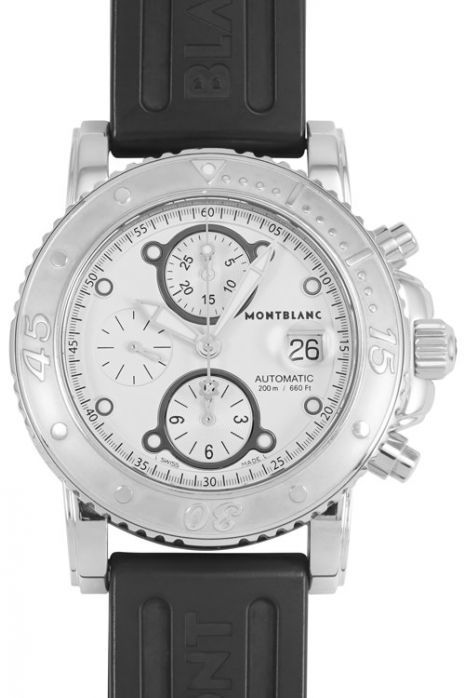
MontblancSport
2014 44 Mmsold out -
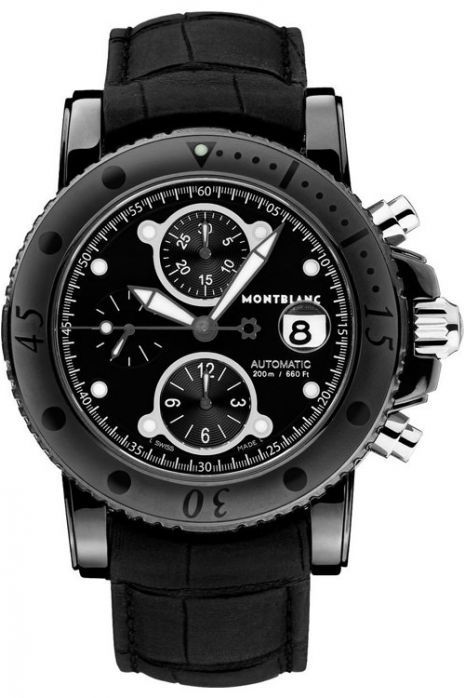
MontblancSport
2013 44 Mmsold out -
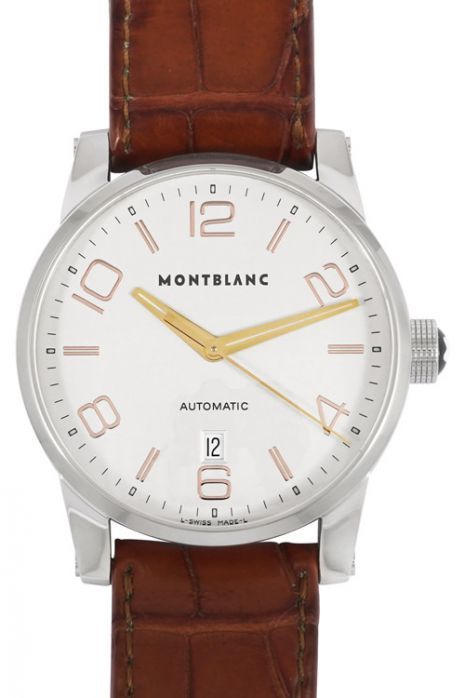
MontblancTimeWalker
2012 42 Mmsold out -
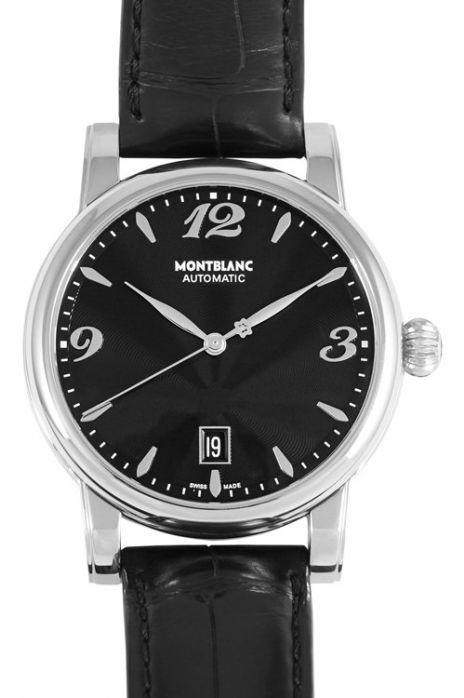
MontblancStar
2012 39 Mmsold out -
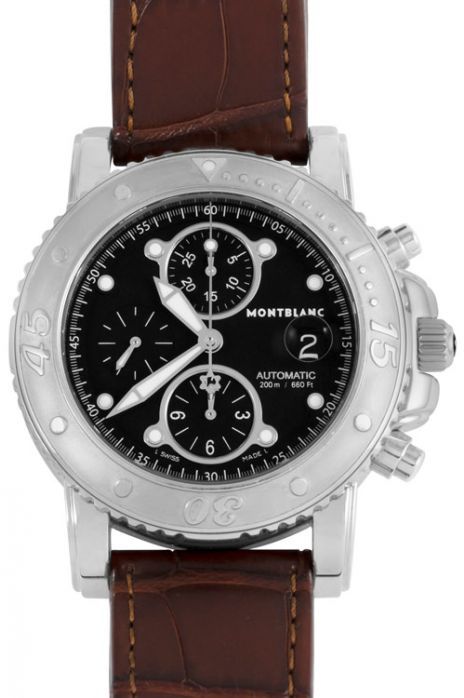
MontblancSport
2014 44 Mmsold out -
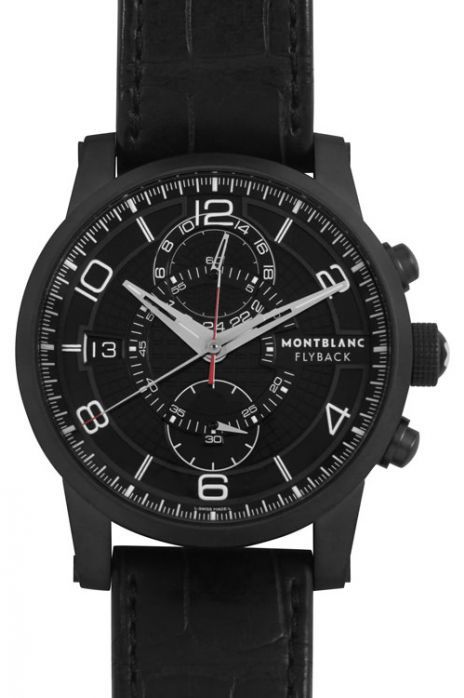
MontblancTimeWalker
2019 43 Mmsold out -
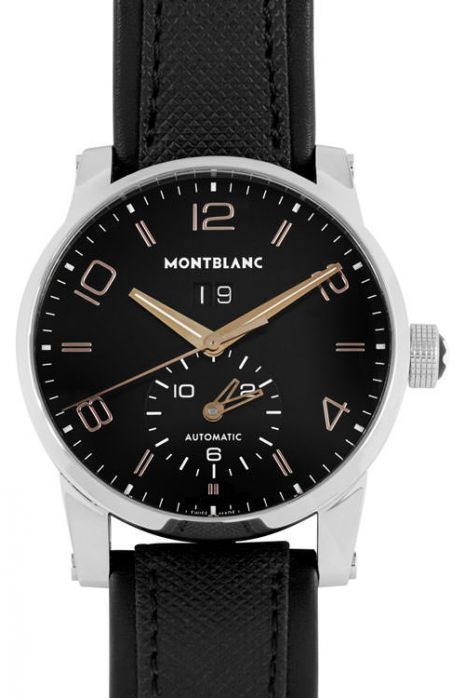
MontblancTimeWalker
2014 42 Mmsold out -
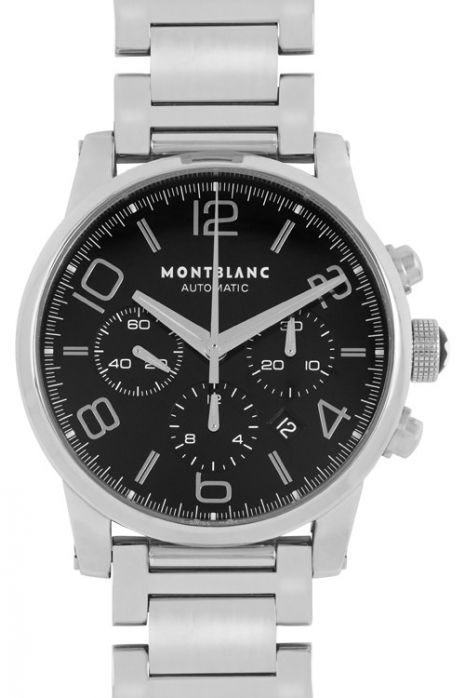
MontblancTimeWalker
2016 43 Mmsold out -
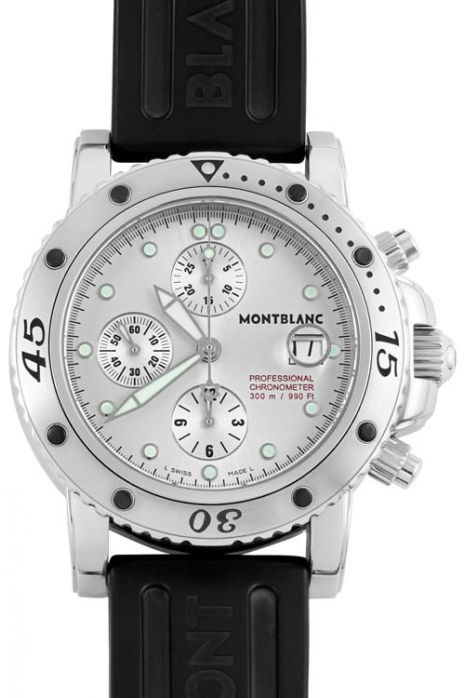
MontblancSport
2021 44 Mmsold out -
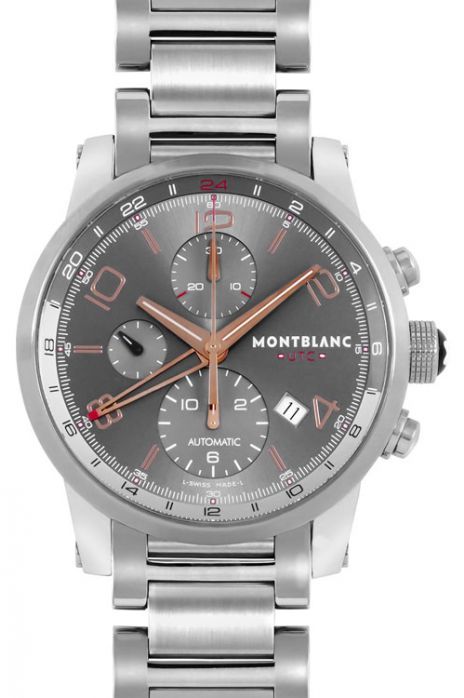
MontblancTimeWalker
2011 43 Mmsold out -
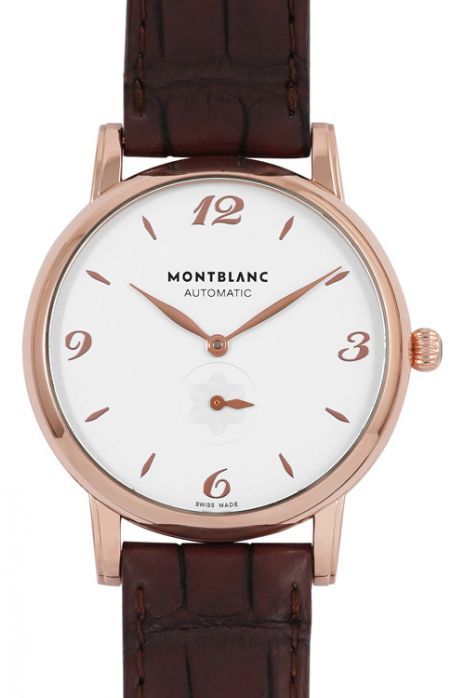
MontblancStar
2016 40 Mmsold out -
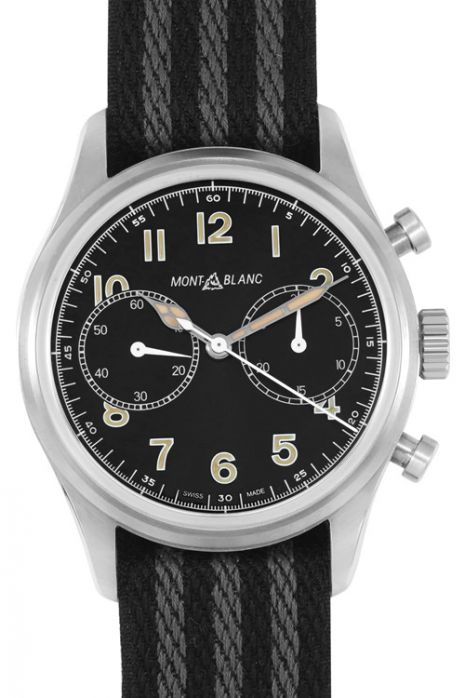
MontblancMontblanc 1858
2018 42 Mmsold out -
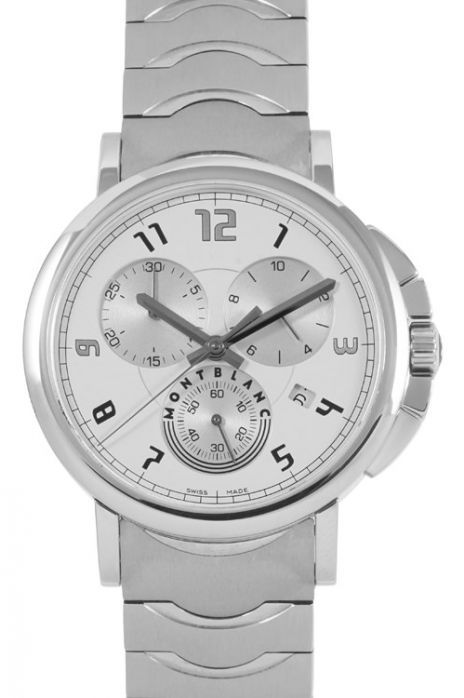
MontblancSummit
2021 40 Mmsold out -
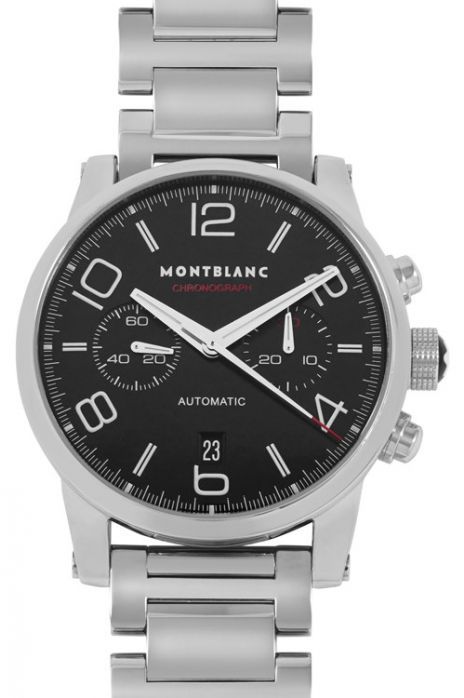
MontblancTimeWalker
2013 43 Mmsold out -
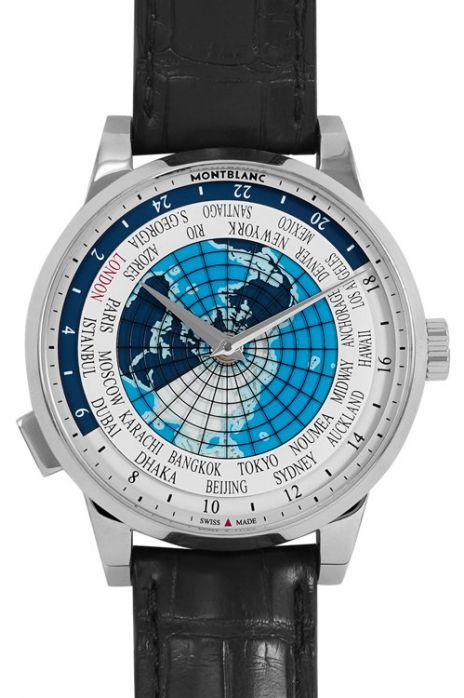
MontblancHeritage
2020 43 Mmsold out -
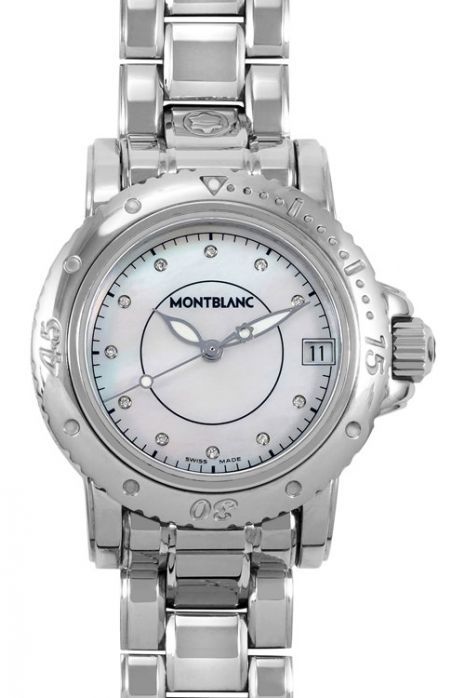
MontblancSport
2016 34.5 Mmsold out
-
- 1
- 2
A Pioneering Watchmaker
Montblanc, the name that is synonymous with luxury and elegance, had a humble beginning in 1906, and interestingly, without the remotest connection to watchmaking. German designer August Eberstein in partnership with banker Alfred Nehemias created a range of simple fountain pens with a built-in ink reservoir ideal for travel. It was not long after the unveiling of this pragmatic creation that Christian Lausen, Wilhelm Dziambor, and Claus Johannes Voss took over the firm. Inspired by the simplistic pen design, the company was initially called ‘Simplo Filler Pen Co.’ In 1909, the brand was rechristened ‘Montblanc’ after the highest mountain in Europe, representing the apogee of excellence and elevated craftsmanship that the brand stood for.
However, the firm did not stop at specialising in writing instruments alone and soon expanded into other market segments. With the acquisition of the brand by luxury giant Richemont in 1993, the company started manufacturing premium leather goods in 1995 and watches in 1997. While Hamburg remained the home of Montblanc’s writing instruments, the brand established its Haute Horlogerie centre in Le Locle, Switzerland. The first Montblanc watches were a classy combination of black and gold inspired by the iconic ‘Meisterstück’ fountain pens released in 1924. Since then, Montblanc has been offering a wide range of models and calibres, each phenomenal in its own right.
But Montblanc was not the only star in the story. The establishment that further strengthened the foundation of Montblanc was Minerva, a Swiss watch manufacturer founded in 1858 and notable for producing chronograph movements. In order to preserve its authenticity and rich heritage, Minerva was taken into the aegis of Montblanc in 2006 to become the Institut Minerva de Recherche en Haute Horlogerie. Today, the Minerva workshops in Villeret serve as the Montblanc Manufacture with the distinction of producing entirely handcrafted in-house balance springs.
Traditional Craftsmanship Meets Contemporary Technology
What was once the house of Minerva stands tall today as the Montblanc Manufacture, defending the legacy of expertise that both Minerva and Montblanc have been championing for over 160 years. It is one of the rare manufacturing centres in the world that sustains a broad spectrum of watchmaking, from traditional, Swiss handmade watches to state-of-the-art timepieces engineered with modern innovations.
The Montblanc Movement & Innovation Excellence Centre at Le Locle is where quintessential Swiss watchmaking meets modern innovations and the latest technologies. Every component of every movement that goes into a Montblanc timepiece is diligently crafted and decorated by hand. From chamfering edges and crafting delicate balance springs to polishing even the most minuscule wheels, the proficient watchmakers accomplish every painstaking process with utmost passion and prowess. The traditional ‘Co?tes de Gene?ve’ stripes and circular graining adorn the plates and bridges.
After every part has been carefully assembled into a Montblanc timepiece, the final test comes in the form of a rigorous quality check. Known as the Montblanc Laboratory Test 500, it involves every watch going through 500 hours of tough and demanding conditions to guarantee flawless functionality.
A Treasure Trove of Timeless Creations
Minerva remains one of the prime sources of inspiration for Montblanc watches. Over the years, Minerva’s creations have transitioned from professional pocket watches and stopwatches to wristwatches equipped with the latest innovations.
The Star Legacy line draws inspiration from the Minerva pocket watches and combines their classic design with today’s technologies. The collection features the classy Nicolas Rieussec Monopusher Chronograph with chronograph turning twin discs, the sleek and monochromatic Montblanc Star Legacy Orbis Terrarum, the automatic Montblanc Star Legacy Full Calendar with moon phase complications, and the ever-iconic Montblanc Suspended Exo Tourbillon.
Exclusively designed for military use and mountain exploration, the Montblanc 1858 line, taking inspiration from Minerva’s chronographs and pocket watches, features timepieces built for extreme terrains. The Montblanc 1858 Geosphere honours the highly challenging arctic explorations, whereas the 1858 Automatic 24H doubles as a compass while being a minimalist 24-hour watch. Another striking model of the collection is the 1858 Split Second Chronograph with a transparent back offering a view into the core of the complex masterpiece.
Epitomising the elegance of vintage watchmaking is the Montblanc Heritage line. Borrowing elements from the classic Minerva wristwatches of the 1940s and 1950s, the collection boasts timepieces with dot indices, domed dials, and elaborate colour palettes. Notable models are the Heritage Pulsograph and Heritage Automatic.
Recalling the grandeur of motor racing is the Montblanc TimeWalker collection with timepieces reminiscent of the classic dashboards of racing cars. With sophisticated aesthetics, the TimeWalker models feature a functional tachymeter scale for high-precision measurement of speed.
A Montblanc timepiece is not simply born out of thin air; it demands years of meticulous labour, decades of experience, and centuries of learning passed down generations. Indeed, the skilled watchmakers and artisans at the Montblanc Manufacture in Le Locle and Villeret put their dedication and soul into every timepiece they bring to life.